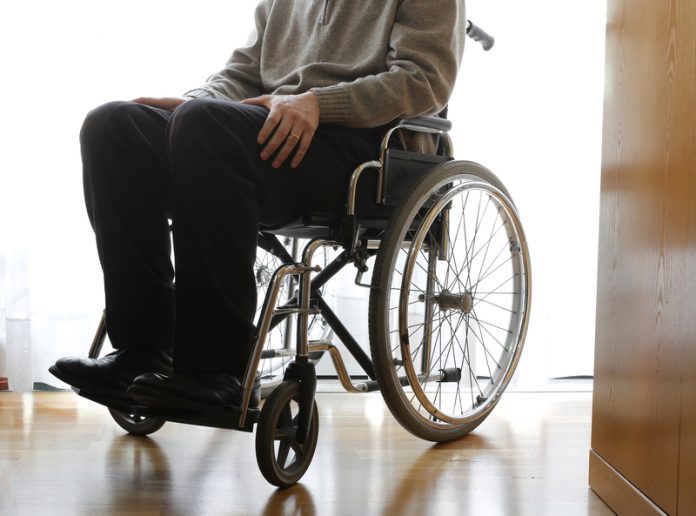Some of the priorities for supporting people with muscle-wasting conditions and their families are explored here by Open Access Government
According to Muscular Dystrophy UK, muscle-wasting conditions today are very rare, and only affect just over one in every 1,000 people. It’s true to say that some health professionals today may never have encountered a patient with a muscle-wasting condition and may not know a lot about them. We’ll take a look at some of the issues around muscle-wasting conditions here, including the need to support those with muscle-wasting conditions, the challenges ahead for these people and their families, as well as some of the fascinating research taking place in the field.
The need for social, emotional and psychological support
Muscular Dystrophy UK’s third edition of their Inclusive education for children with muscle-wasting conditions: a guide for schools and parents sets out to help meet the need for accessible, up-to-date information on inclusive education for children and young people with muscle-wasting conditions. It’s true to say that such a resource can make an important contribution to helping people live as independently as possible.
Robert Meadowcroft, Chief Executive Muscular Dystrophy UK shares his thoughts on the guide, which was completed with the help of members of a working party and the support of the Department for Education. “The guide…offers advice about health issues, emphasising the variability of muscle-wasting conditions, and highlights the need for social, emotional and psychological support. We do hope parents and schools find this revised edition informative and helpful.” (1)
Muscle-wasting conditions research
One of the aims of Muscular Dystrophy UK is to support high-quality research to seek effective treatments and cures until they have found them for all muscle-wasting conditions. As an example of the excellent research taking place in the field, the charity recently highlighted a study which has demonstrated the value of a new mouse model of facioscapulohumeral muscular dystrophy (FSHD). Here, we find out animal models are important for studying the effects of potential treatments, as well as understanding muscle-wasting conditions.
The mouse model originates from Dr Scott Harper and his colleagues at Nationwide Children’s Hospital, Ohio, in the U.S. Developing animal models of FSHD has not been an easy task in the past due to the toxicity of the DUX4 protein but to overcome this hurdle, a genetic tool allows Dr Harper and his team to tightly control DUX4 levels in the mice. Dr Harper explains this interesting point further, in his own words.
“Even small amounts of ‘leaky’ production of DUX4 make it difficult to get the animals to develop properly. To produce the mice we wanted, we needed to control when and where DUX4 would be turned on in mice.”
Also, where this research is concerned, we discover that the follistatin gene therapy increased the size of the muscles that it was injected into, plus it improved the strength of these muscles. While such therapy doesn’t target DUX4, the results demonstrate that much potential remains for treating FSHD. Dr Harper goes on to detail his own thoughts on this fascinating aspect of muscle-wasting conditions research.
“Follistatin has been shown to be safe when delivered to humans with other muscular dystrophies, such as Becker and Duchenne. While the effectiveness may be limited in those cases, because they are more aggressive, we think that the typically slower progression of FSHD may make it a better candidate for follistatin therapy. Although more work needs to be done, we believe our study shows that Follistatin gene therapy may prove to be a promising potential treatment for FSHD-associated muscle weakness.” (2)
Changing Places toilet provision at service stations
Let’s now take a look at an aspect of muscle-wasting conditions research highlighted in a recent report from Transport Focus about the disabled user experience on England’s road network. The report suggested a practical measure to support those with muscle-wasting conditions, which is to increase Changing Places toilet provision at service stations on England’s road network. Today, there are only 21 registered Changing Places toilets at service stations throughout the UK. Certainly, current provision is woefully inadequate and prevents thousands of disabled people and their families from travelling due to fears of where they will not be able to use a toilet.
However, it’s not all bad news following the recent announcement that Muscular Dystrophy UK will be working with the Department for Transport to provide £2 million of funding for Changing Places toilets to be installed at motorway service stations in England. By way of background, this funding forms part of the UK government’s Inclusive Transport Strategy, which sets out to provide equal access to the UK’s transport network by 2030.
Commenting the partnership Catherine Woodhead, Chief Executive of Muscular Dystrophy UK, says: “We welcome the Department for Transport’s investment in Changing Places toilets at motorway service stations across England. By building more Changing Places across the road network, disabled people and their families can travel in the knowledge there will be fully accessible toilets they can use safely and with dignity.
“Investing in Changing Places toilets means we can tackle the exclusion many disabled people face. We look forward to working in partnership with the Department for Transport and our campaigners in delivering this project.” (3)
Mental health services
Finally, let’s briefly look at another challenge highlighted by Muscular Dystrophy UK which concerns a lack of access to specialist mental health support for those with muscle-wasting conditions and their families, according to a new Parliamentary report. I think it is fitting then that we leave the last word to Catherine Woodhead, Muscular Dystrophy UK CEO, who shares her own insights into this important matter, which ties in well with the strong theme in this article that concerns supporting those with muscle-wasting conditions by providing them with the right support and resources. “This report shows just how important it is for better recognition and provision of specialist mental health support for all family members who are likely to be affected by the impact of muscle-wasting conditions.” (4)
References
2 https://www.musculardystrophyuk.org/news/news/new-fshd-mousemodel-treated-with-gene-therapy/
3 https://www.musculardystrophyuk.org/news/news/new-research-onthe-accessibility-of-roads/
Open Access Government
editorial@openaccessgovernment.org











